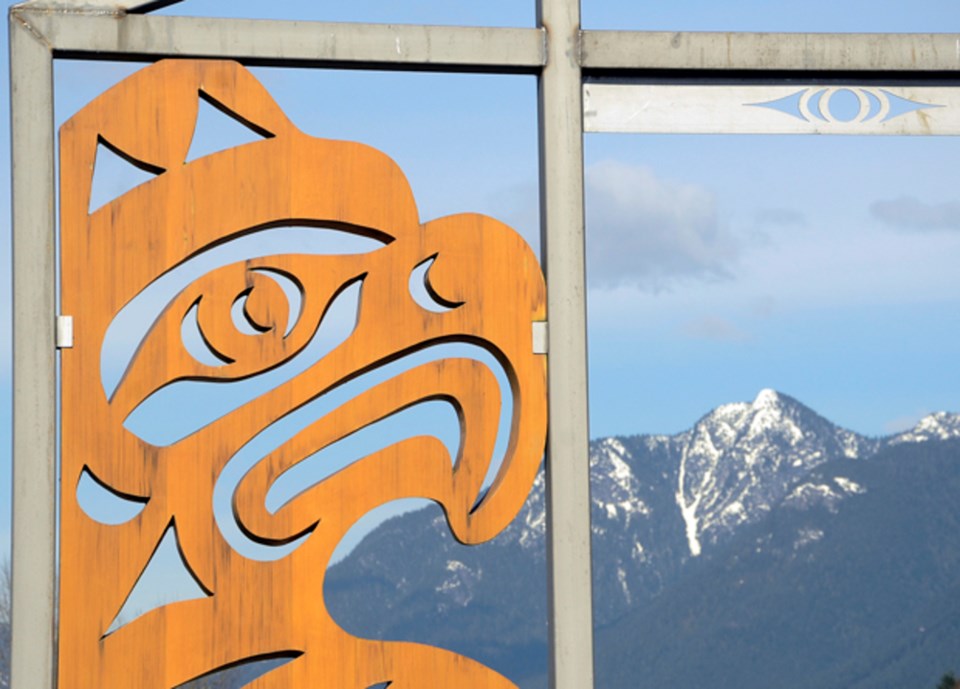To mark National Indigenous History Month and Indigenous Peoples Day, Sḵwx̱wú7mesh Úxwumixw (Squamish Nation), Squamish Public Library and West Vancouver Memorial Library are teaming up to present storytelling by Nation síiyuxwa7 (Elders) during the month of June.
Three storytelling events are happening across Squamish Nation territory, with one at Squamish library, and the final one at West Van library. The series kicked off June 7 with storytelling at Chief Joe Mathias Recreation Centre.
The nation’s Elders Centre team leader Lucie Neliba said now that people can gather again under current COVID-19 restrictions, it’s a great opportunity for people to see the emotions in the storytellers and be able to visualize stories better. A critical resource for the nation, the Elder’s Centre helps Elders gather and continue connections.
Last year, the nation had teamed up with the West Van library to present "dial-a-story," where members of the public could call in and hear a story from an Elder.
Neliba said Elders will come and present stories of their choosing – a personal story or story about the First Nation. Everything is welcome.
“What we've seen in previous storytelling is it's very emotional. Sometimes it brings out their past, their childhood, and that's often what they like to go to,” she said. “They talk about their family and the family tree, a little bit of where they come from. And it's neat to see. Sometimes when they talk about where they used to live, and how that looked in the day, a lot of community members may not know that there were different areas that they lived and actually lived off the land.”
Neliba said the past few years, especially with the location of more than 10,000 unmarked graves across the country, have been particularly hard and quite triggering for Elders.
“And at the same time, we're not seeing a lot of the sharing of what some of the survivors went through,” she said. “Of course, that's their choice if they want to share, but I think when an Elder chooses to share it, it really sort of grounds them, and allows for the community to just see what really happened. And you get that connection with the Elder directly.”
Neliba said it’s one thing for people to read about what happened to survivors, “But when you're hearing them speak, it's a completely different feeling.”
Listening to their stories might sometimes be difficult, but allowing space for them to share their experiences with community members can help with their healing, she explained.
“We like to bring it forward, especially during the month of National Indigenous History. And … we want to keep that going all year long, of course … especially during this time of truth and reconciliation.
“It's a way for Elders to express themselves, connect with the wider community and to really get a glimpse of the people who continue to live here. And a bit of their history.”
Events for the Squamish Nation community are also being held during June, with more information to be released via the nation.
Charlie Carey is the North Shore News' Indigenous and civic affairs reporter. This reporting beat is made possible by the Local Journalism Initiative.
[email protected]
twitter.com/careycharlie_



